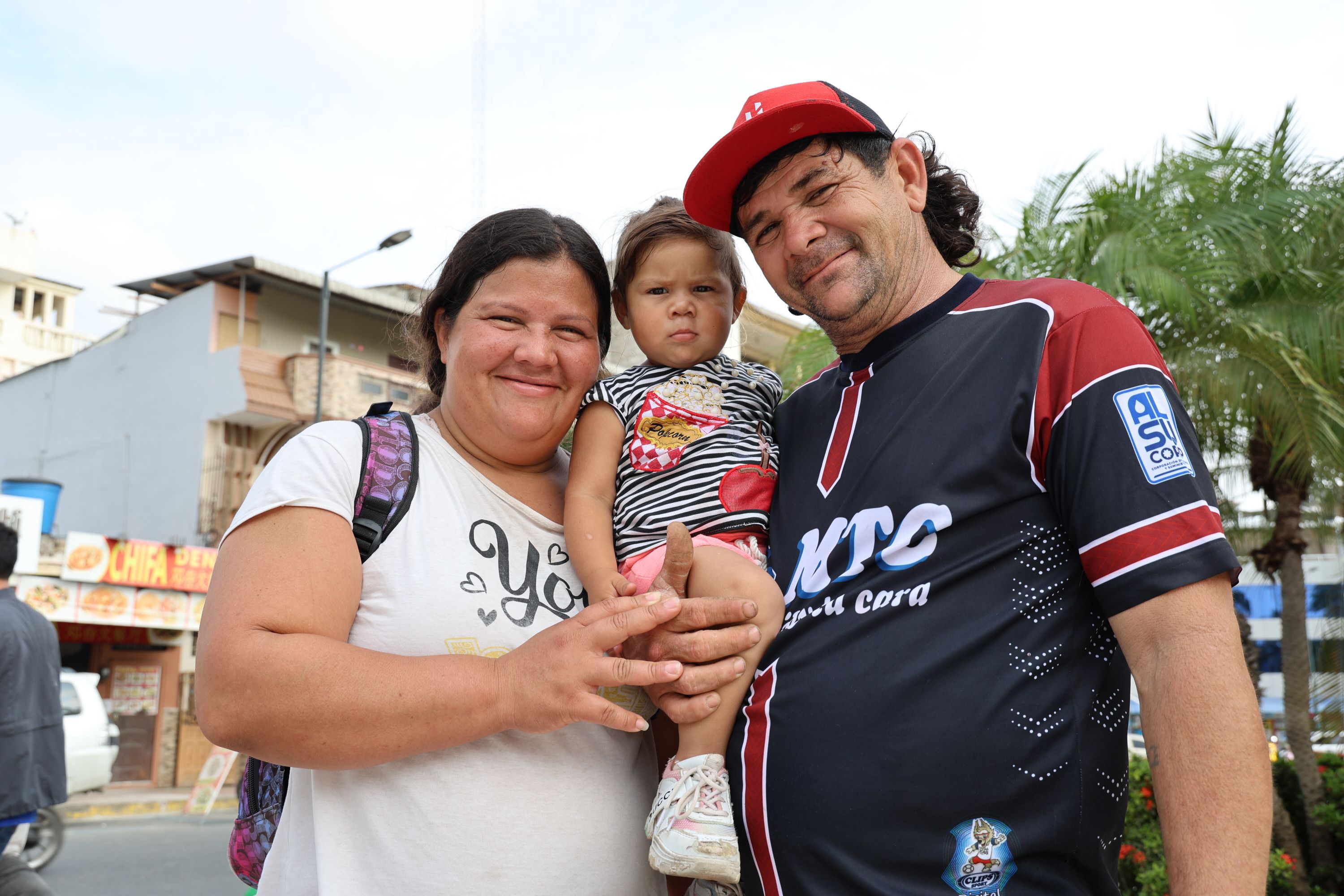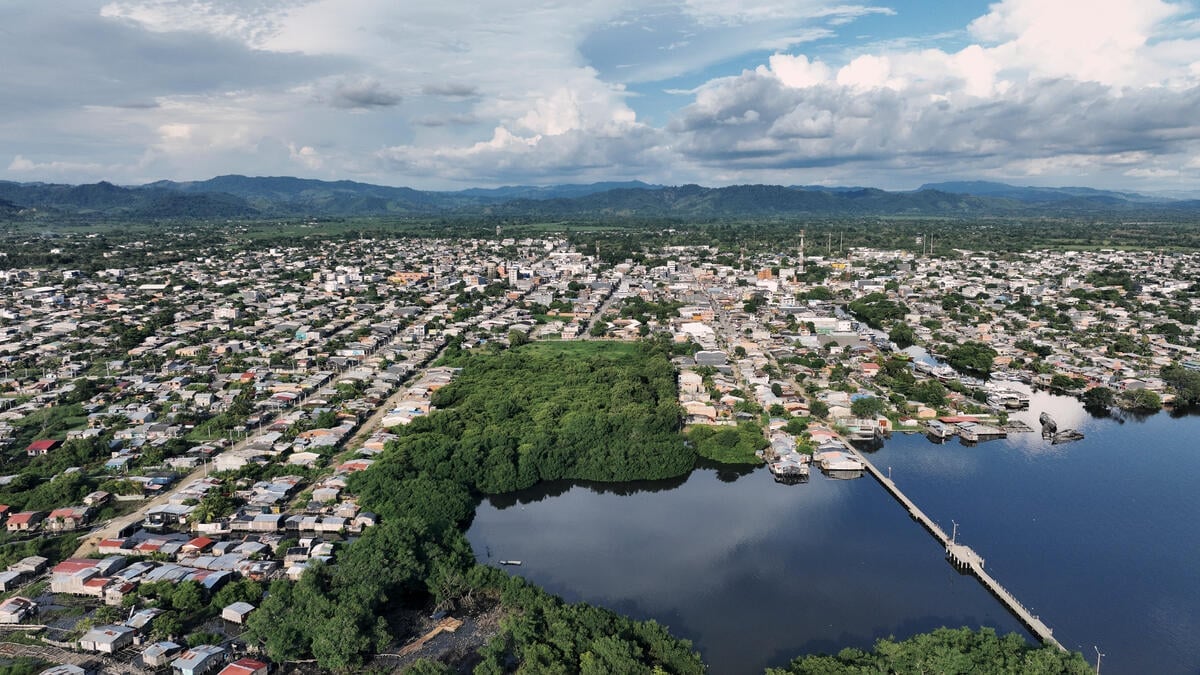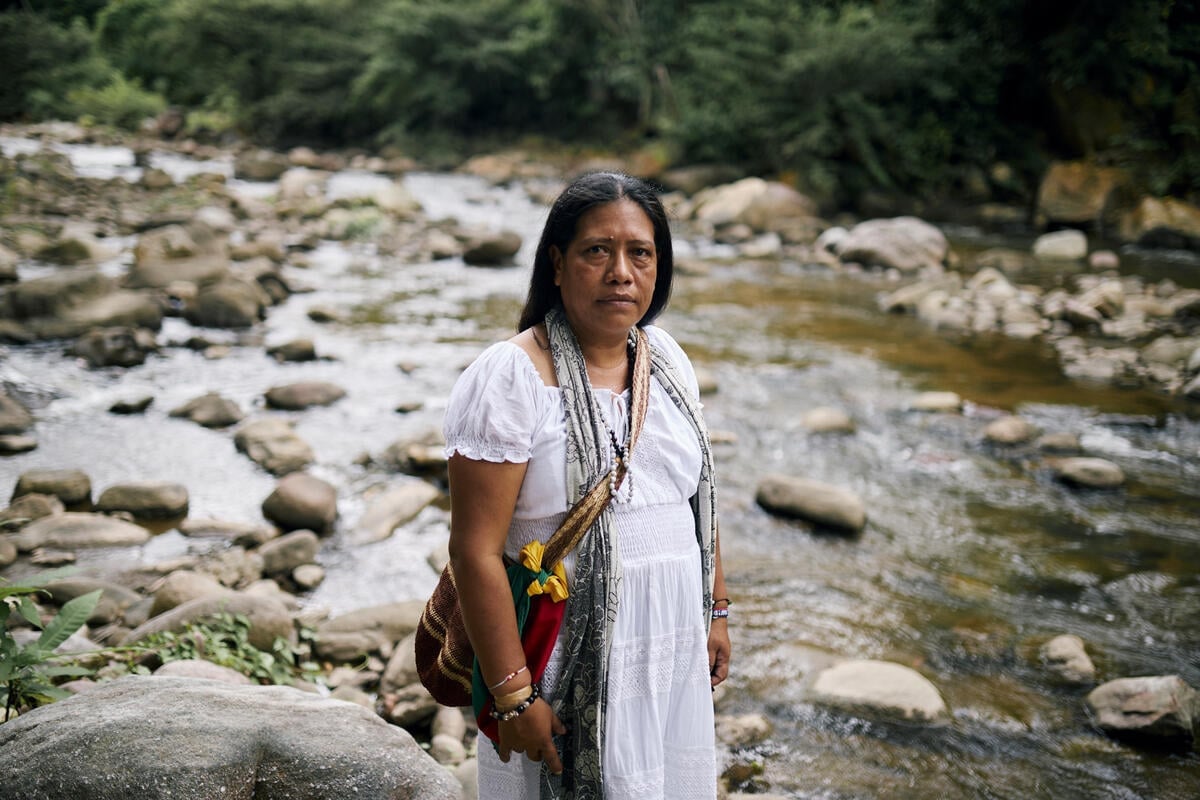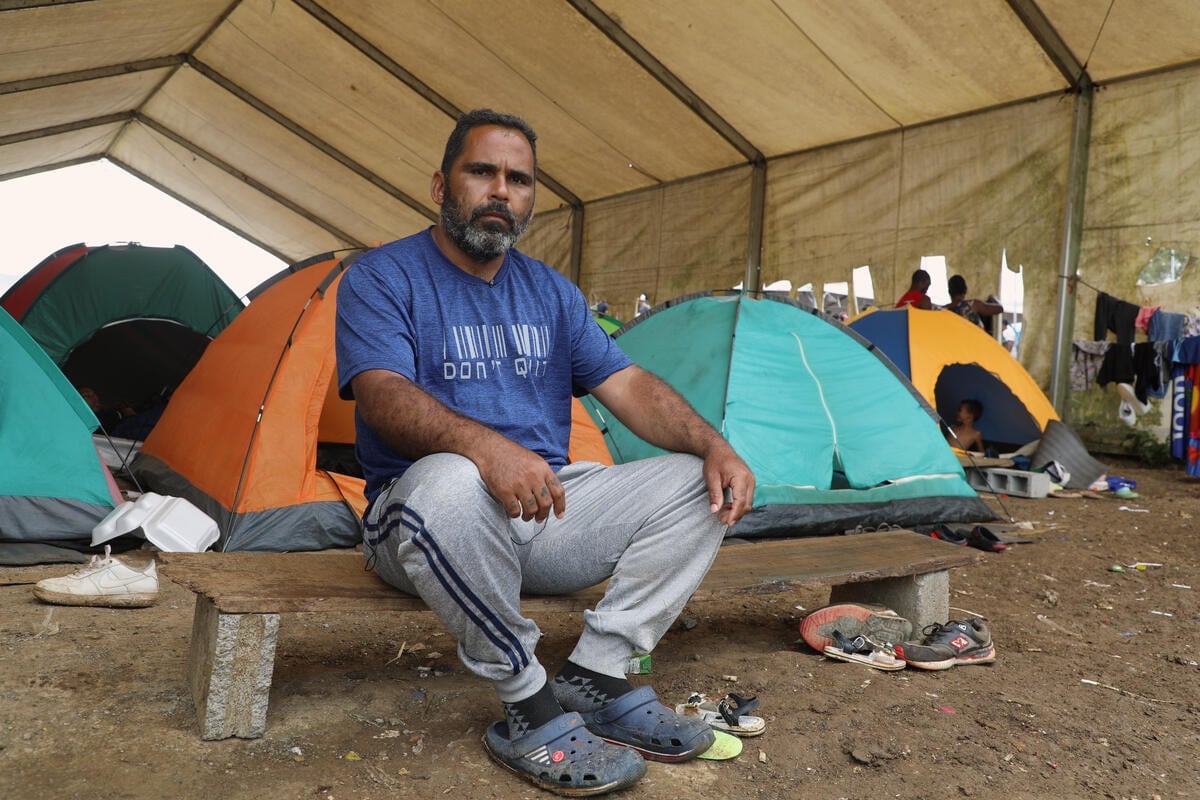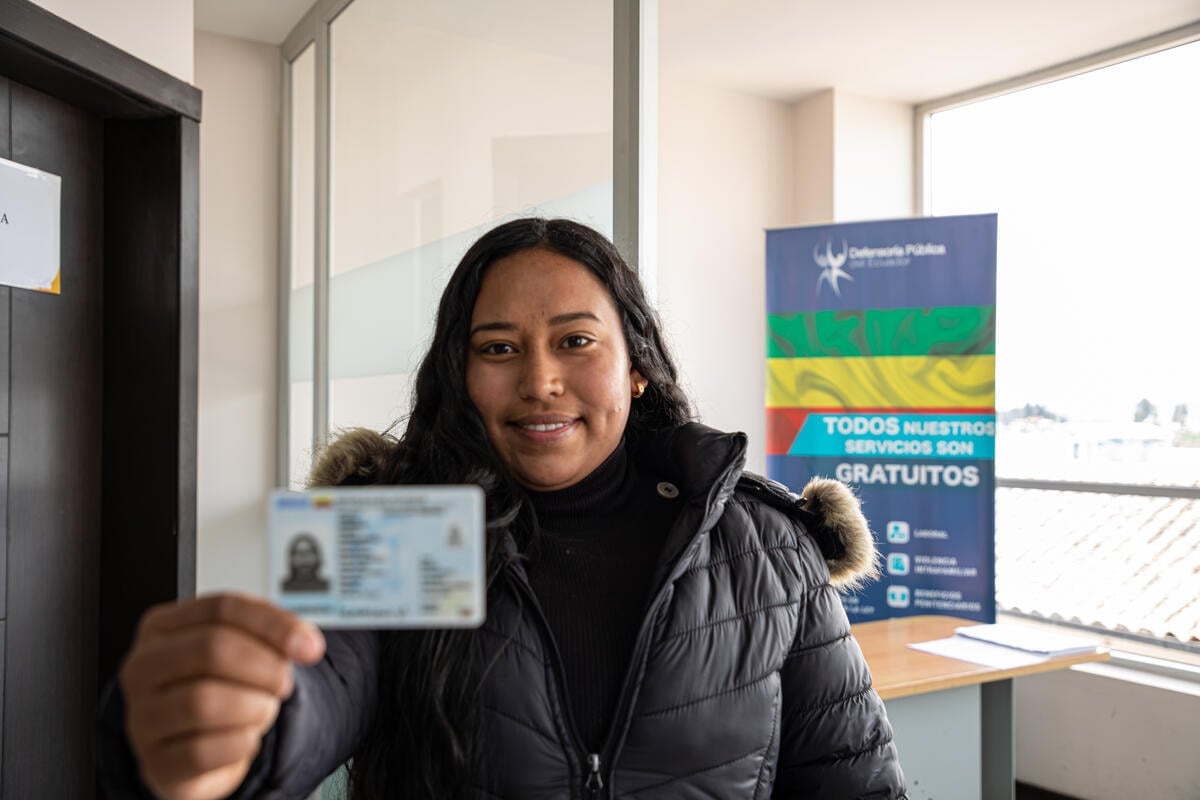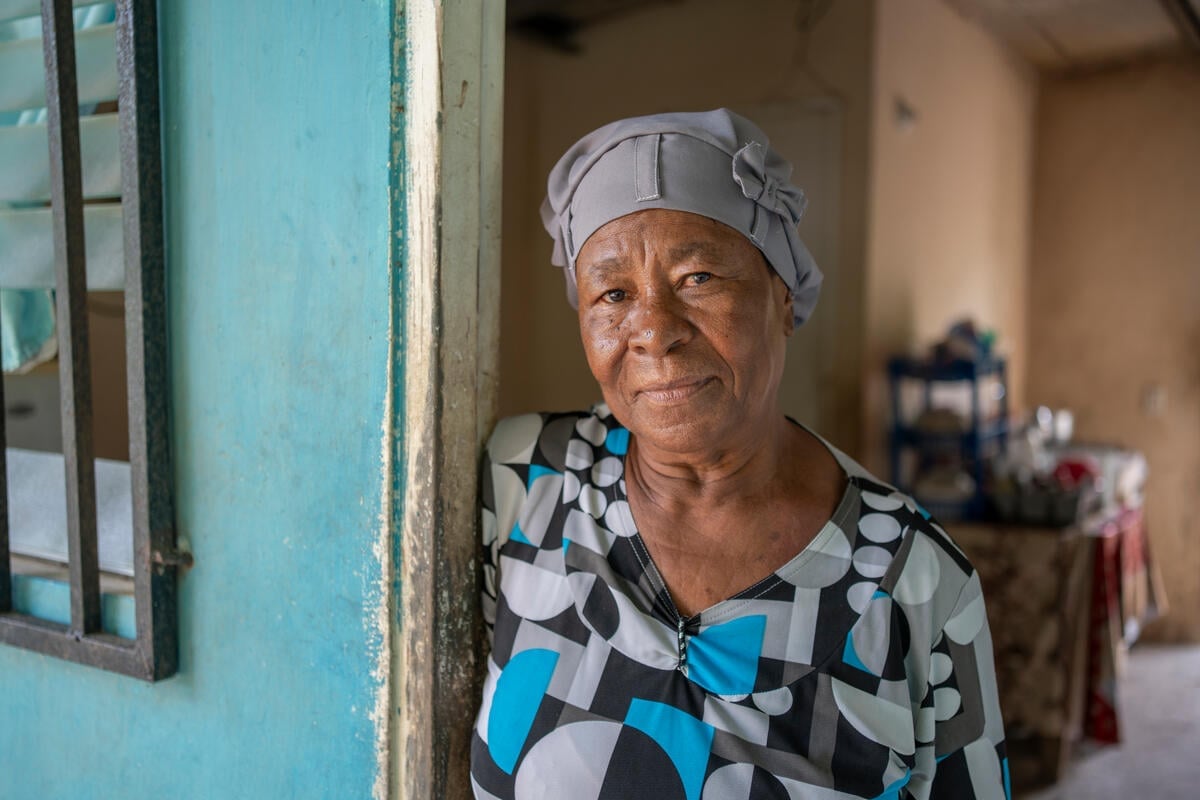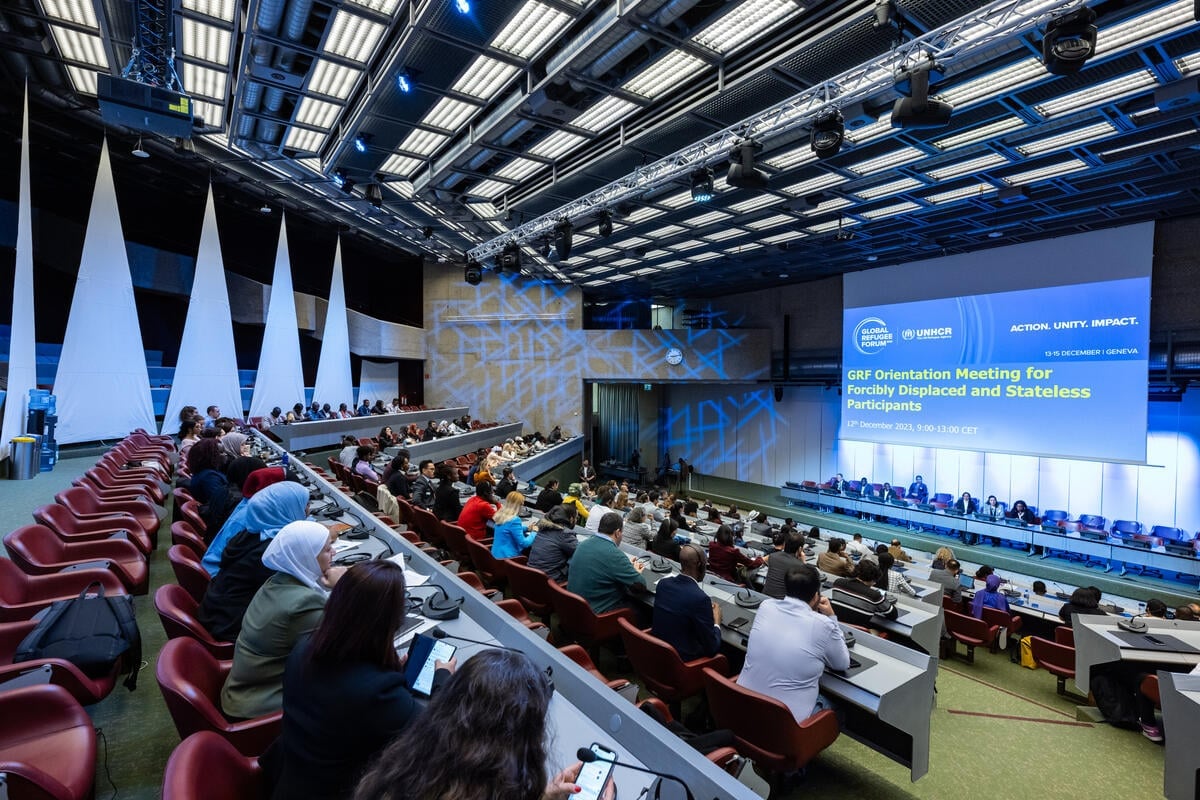Ecuador sees sharp surge in Colombian asylum seekers
Ecuador sees sharp surge in Colombian asylum seekers

QUITO, Ecuador, May 9 (UNHCR) - Fighting in south-western Colombia has caused a surge in the number of Colombians seeking asylum in neighbouring Ecuador since the beginning of this year, highlighting the importance of the UN refugee agency's efforts to boost its border assistance and improve asylum processing.
In the first four months of this year, over 5,100 Colombians sought protection in Ecuador - more than four times the number over the same period last year. This upsurge comes as the conflict deteriorates in Colombia's border areas with Ecuador.
Since January, the Colombian department of Nariño, which borders Ecuador, has seen intensified clashes both among the various irregular armed groups, and between these groups and the government forces. The fighting has also caused a rise in internal displacement in Nariño itself, as people flee from rural areas to urban centres, as well as within and between urban centres.
Clashes and displacement are reportedly also on the rise in Putumayo department, also bordering Ecuador, and in Caqueta department further inland.
UNHCR has been assisting the government in Ecuador to cope with the recent influx of Colombians. The agency provides training and equipment to government officials to deal with asylum requests, and helps fund additional government staff to deal with the applications.
In February, UNHCR and the government started implementing a new identification document system that should help facilitate the process and improve protection by providing personal documentation for every member of refugee and asylum seeker families. The documents should enhance individual security and help enable the refugees and asylum seekers to exercise their rights.
On the humanitarian front, UNHCR has deployed two additional staff to Ecuador to boost its presence and help cope with the influx. UNHCR staff work with the government, the Church, the Red Cross and other organisations assisting refugees and asylum seekers in the country.
In the border zone itself, the refugee agency's staff have been travelling through the area to monitor border crossings and assess the needs of the new arrivals, who receive temporary shelter in five reception centres in the border area set up by UNHCR and its implementing partners. Particularly vulnerable families also receive assistance such as health care and emergency kits.
UNHCR has also been supporting the refugee-hosting communities to help the refugees and asylum seekers integrate locally.
Over the past three years, the number of Colombians seeking asylum in Ecuador has increased markedly, from 413 in 2000 to 4,275 in 2001 and 6,270 in 2002. In all, more than 16,000 Colombians have sought asylum in Ecuador since the beginning of 2000, out of which 4,225 have been granted refugee status by the Ecuadorian government.
As the number of asylum seekers grows, UNHCR and the Ecuadorian government have been examining ways of clearing the significant backlog in processing cases - by increasing the number of processing officers, and/or reviewing existing procedures.
The UN refugee agency has thanked Ecuador for its ongoing generosity towards people fleeing the violence in Colombia and efforts to ensure that those in need of protection can remain in safety. While UNHCR has obtained donor support for the Ecuadorian operation, it has appealed for more aid in view of the increasing trends and the emerging needs of refugees.


